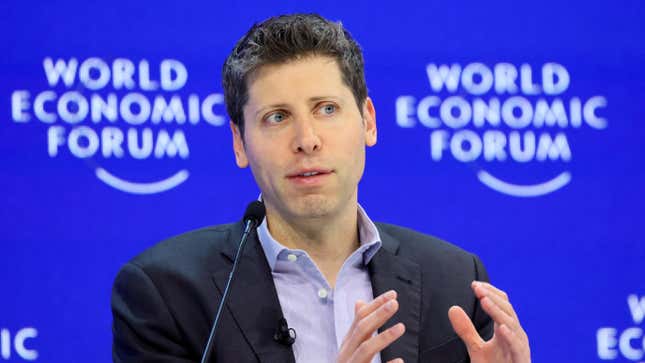ARTICLE AD

Sam Altman, OpenAI CEO.Photo: Denis Balibouse (Reuters)
This article originally appeared on Quartz.com.
OpenAI CEO Sam Altman wants to raise as much as $5 trillion to $7 trillion on a new project that would boost the world’s chip-building capacity, the Wall Street Journal has reported. The amount is larger than the current size of the global chips market — and more than the market caps of Apple and Microsoft combined.
ChatGPT’s Creator Buddies Up to Congress | Future Tech
Only a handful of tech companies need a lot of AI chips, and those that do are hungry for more. Because chips are costly, well-resourced tech giants like Microsoft and Amazon are building their own in house. Leaders in the tech industry have long complained about shortages of Nvidia’s $40,000 H100 chips, the most powerful AI chip on the market.
The US government is stepping in, too. Amid the chip crunch and the global race to dominate AI, the White House announced today that it will invest more than $5 billion in semiconductor-related research, development, and workforce needs in efforts to expand US chip production.
Altman’s new project is aimed at solving chip constraints for OpenAI. Chips aren’t just needed to power ChatGPT — they’ll also pave the path for the company’s ambitions of building artificial general intelligence, or AGI, which refers to AI systems that can reason as well as human beings.
Altman has already met with government officials like the United Arab Emirates’ top security official Sheikh Tahnoun bin Zayed al Nahyan and US Commerce Secretary Gina Raimondo, along with investors and industry partners to discuss building chip foundries that would be run by existing chipmakers, according to the Wall Street Journal. OpenAI would agree to be a significant customer of the new factories, the publication noted. The project could span years — although even with a $7 trillion price tag, its success isn’t guaranteed.

 1 year ago
74
1 year ago
74 

